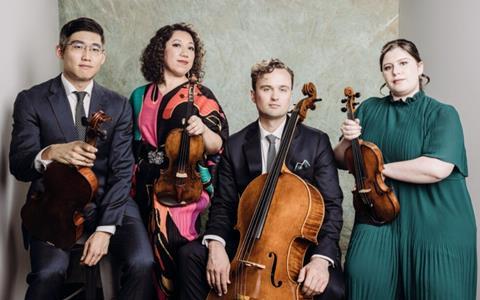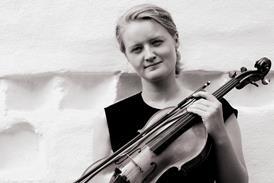Bruce Hodges hears the performance of Reena Esmail, Shulamit Ran, Fanny Mendelssohn, Felix Mendelssohn and Clara Schumann at the American Philosophical Society, Philadelphia, on 24 March 2024

Whether intended or not, this well-conceived afternoon with the Aizuri Quartet made for a fine way to celebrate Women’s History Month, with striking bookends by Reena Esmail (b.1983) and Fanny Mendelssohn (1805–47). In between came two sextets, with violist Kim Kashkashian and cellist Marcy Rosen joining the foursome for a luxurious textural contrast, first in Shulamit Ran’s Lyre of Orpheus (2008), which requires one of the cellos to be tuned down a third, creating even greater lower resonance. A sensuous chestnut followed, the Sextet from Richard Strauss’s Capriccio.
Esmail’s ‘Fantasie (Bihag)’ from Ragamala (2013) was a gorgeous starter, its opening strains demonstrating the sheer tonal beauty of cellist Caleb van der Swaagh and violist Brian Hong – both of whom joined the ensemble last year – and fine complements to the sweetly sustained phrases by the Aizuri’s violinists, Emma Frucht and Miho Saegusa. In contrast, the exuberant Fanny Mendelssohn String Quartet in E flat major (1834) that closed the concert only reinforced the feeling that it deserves a more central place in the repertoire.
Read: Aizuri Quartet announces two new members
The Strad Podcast #90: on the road with the Aizuri Quartet
Read: Winners named at $100,000 M-Prize Chamber Music Competition
Additional works included the Capriccio from Felix Mendelssohn’s Quartet op.81, in a satisfyingly peppy reading, and ‘Die stille Lotosblume’ from Clara Schumann’s Sechs Lieder op.13. The latter made an especially verdant oasis, flowing like spring water from the group’s lithe hands and fingers.
BRUCE HODGES


































No comments yet